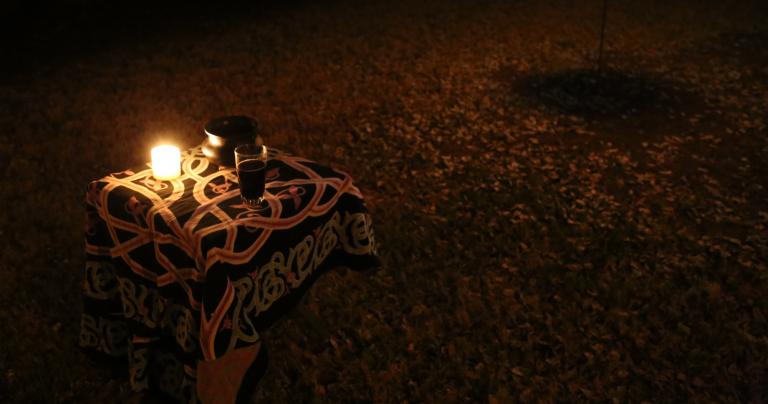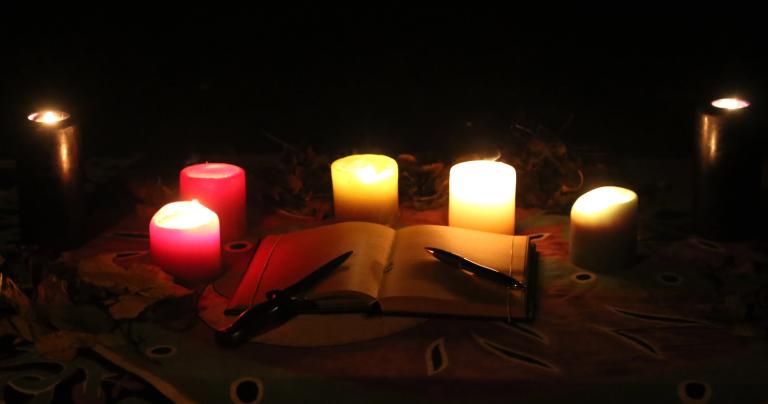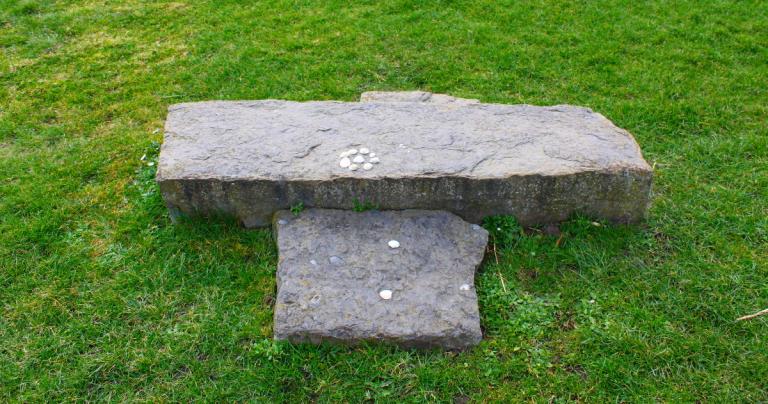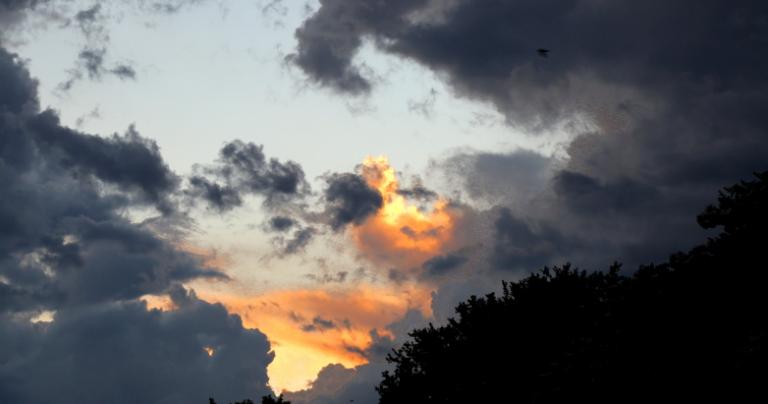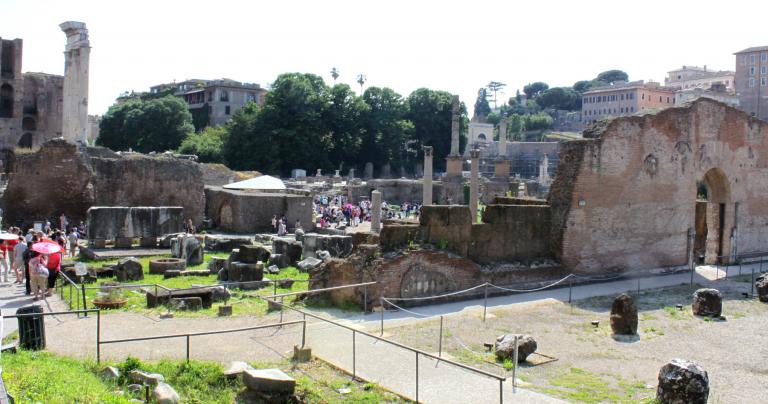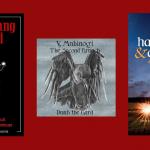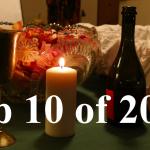After 10 years of blogging I’ve got a pretty good idea which posts will go over well and which ones won’t. My political posts don’t do well (although a few do very well). Book reviews and travel posts don’t do well. There’s a fine line between writing about mystical experiences in a way that people find engaging and “trying to eff the ineffable.”
While watching the numbers go up is nice, at the end of the day I don’t write for pageviews. I write because I have something I need to say, or because Someone tells me to write something. I write what I write and after that it’s in the hands of the Gods and the readers.
Still, there are times when I find myself saying “this is important – why are people not reading this?”
Here are four posts from 2018 I think have some really important concepts in them, but that weren’t well read. Take a look at these summaries, and if you didn’t read them the first time, check them out now.
What Fictional Witches Can Teach Us About Pursuing What We Really Want (November 2018, #119 in readership).
This one gets the award for “most disappointing post that’s my own damn fault.” It was inspired by The Chilling Adventures of Sabrina and it was originally titled “For Those Afraid to Sign The Book of the Beast.” It used my reaction to Sabrina’s reluctance to sign the Book of the Beast to start a conversation on the challenges of beginning the study and practice of a new religion or spiritual path.
Even if you are able to dismiss the religious indoctrination of your childhood, the path of magic, the path of the old Gods, the path of Paganism may not be right for you. I do not believe in eternal damnation, but our Gods are not safe. Magic is not safe. Witchcraft is not safe. It is foolhardy to pretend there are no risks.
At the last minute I decided to change the title. Part of me was worried that my Christian and spiritual-but-not-religious friends might see the title and come to a wrong conclusion. A bigger part thought that for all the chatter about Sabrina on the Pagan internet, most readers weren’t watching the show and wouldn’t get the reference.
I should have left the title alone and ignored any charges of sensationalism. If you’ve seen the show (and I love it, even though I wish the witches were Pagans instead of Satanists) you’ve probably wondered “would I sign?” just as I did. There is no Book of the Beast, but the question remains for those of us called to a different path.
There is the book and here is the pen.
Will you sign?
Why We Make Oaths (July 2018, #122 in readership).
The phrase “a man’s word is his bond” is pretty much gone from our common culture, and not because of the gendered language. Now a promise means “I’ll do it if it’s not too inconvenient, and if I don’t get a better offer between now and then.” But
Our Gods and especially the Fair Folk have older expectations – there is no such thing as extenuating circumstances. Do what you said you’d do or die trying – or live in dishonor, which is worse than death.
These expectations lead some to question whether we should make oaths or not. Oaths should be made carefully, thoughtfully, and rarely. But we should make them.
Oath making and oath taking is a long and honorable tradition. We commit ourselves to virtues, to actions, and to relationships. Our oaths help others to be sure of our commitment, so they can make their own plans with confidence. When we keep our oaths – especially when we keep them through difficulties – our reputation grows.
If we break our oaths our reputation is destroyed.
Discernment: Distilling the Truth from our Pagan Experiences (July 2018, #124 in readership).
This is one of those posts I didn’t expect to do well. Let’s face it – discernment isn’t a sexy subject. It’s not a witchy subject either – the term is usually used in a Christian context, especially in trying to figure out whether or not a person is experiencing a call to ministry or priesthood.
But discernment is not a Christian-only thing. Discernment is the ability to judge well. It’s the ability to separate the true from the false, facts from opinions, and gold from dross. That’s important in any religion.
Discernment keeps us from jumping to conclusions that are simple, pleasant, and wrong. Discernment keeps us from putting our experiences under glass and ignoring calls and messages that are important even if they’re also difficult and scary. Discernment helps us distill the truth from our Pagan experiences.
Discernment requires context and knowledge. It requires observation, analysis, and synthesis. Ultimately, discernment requires a decision.
The Value of Chaos (May 2018, #134 in readership).
One of the recurring themes over 10 years of Under the Ancient Oaks is that while you don’t have to like the way things are, you damn well better deal with things the way they are. The reality of chaos is one of those things we need to deal with as it is.
When you mention chaos, some of us think of Loki pulling tricks and laughing at us – chaos is funny. Others think of Set murdering Osiris – chaos is evil. But chaos is much more than either of those things.
Communities, cultures, religions – they require constant maintenance or they’ll fall into disrepair. The more complicated the system is, the more maintenance it requires, and the more likely it is to succumb to chaos.
Our common culture is descending into chaos and there is very little ordinary people can do to stop it. Some of us don’t want to stop it. Chaos disrupts stagnation. More importantly, chaos creates opportunities.
Whether chaos is economic, political, cultural, or spiritual, it will tear down walls and gates. It will destroy existing centers of power and create a vacuum waiting to be filled. It will create opportunities to make money, to change laws, to influence others, and to work magic…
Chaos-created opportunities favor the bold, the energetic, and the skilled. All that work and study you put in over the years, not knowing what it was for? This is what it was for.
I don’t like chaos. I like order. Truth be told, I like order a little too much. But what I like doesn’t matter. Chaos is growing, and those of us who figure out how to take advantage of the opportunities it presents will be much better off than those of us who cling to the way things have always been.
Thank you for reading and sharing, for commenting here and on Facebook, and for generally supporting Under the Ancient Oaks. On Thursday I’ll talk about the posts you did read: the Top 10 Posts of 2018.


